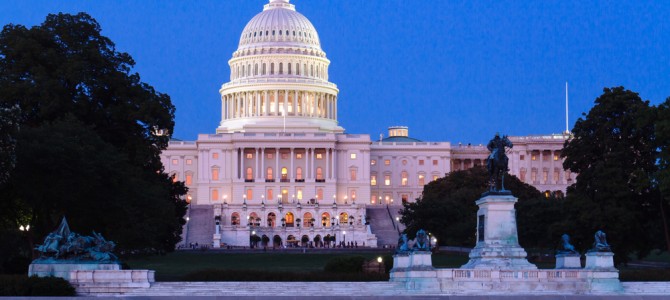
Why do people work for the government? Recently, Iowahawk, a notable random internet drunk, caused a stir by making fun of government employees, suggesting that their pensions are often overgenerous and their self-image inflated. Civil Service Twitter took the joke badly, with many Twitter equivalents of “Harrumph” and, “How dare you, Sir!” and suggestions that all government employees are heroes without whom the USA would slide into Somalia-like chaos.
This reaction validated the mockery. There are government employees, such as soldiers and firefighters, whose job descriptions include taking risks to protect the rest of us, and who can justify their compensation accordingly. And then there are the human resources people at the Department of Agriculture.
These workers may be necessary, but they are hardly risking life and limb for the public good. But desk-jockey government workers often make another claim to self-sacrifice, declaring that they are underpaid compared to the private sector. This is, at least for federal employees, generally false. The combined pay and benefits federal employees receive are usually greater than what their private sector counterparts earn, except for those who have professional degrees or doctorates. And this data tracks with observation and experience. People work for the government not from altruism, but for the same reasons they work anywhere else: money, benefits, and factors like personal satisfaction, job security and quality of life.
Among government workers whose jobs do not call on them to risk life and limb, there are two relatively distinct categories: the Ambitious and the Comfortable.
The Ambitious really could leave government work for more money elsewhere, but they stay because it satisfies the non-monetary desires that driven and talented people often have. The salary may be lower, but the power and prestige tend to be greater, and the work more interesting and meaningful. Opportunities for advancement and development tend to come sooner. And, eventually, many of these workers return to the private sector to cash in on the skills and contacts they developed in government.
For example, ambitious students at good law schools compete fiercely to clerk for federal judges after graduation, rather than immediately going to Big Law. The experience and career-long prestige are more than worth the lower salary for a year or two. And those federal judges could themselves make more money in the private sector, but it is rare for one to resign to do so. They stay on the bench because they have a lifetime appointment that gives power, respect and a job that interests and challenges them. Skilled lawyers often rotate between private practice and government, and both are glad to have them.
It is not a bad thing if ambition and other self-interested reasons induce high-quality professionals to work hard in the public sector for much less than they could earn in private practice. But for every skilled professional whose ambition or interests enables government to snag her services at a discount, there are many more government workers (including many mediocre professionals) who wouldn’t get a better deal in the private sector.
These are the Comfortable, who are less ambitious, and usually enjoy easier hours along with excellent benefits, pensions, and job security. In many areas, government jobs are some of the best around, especially for lower-skill workers. These workers may do their jobs well, but they were never going to be highly-paid hotshots in Big Law, Big Industry, Big Pharma or any other private-sector Big.
But when it comes time to negotiate over salaries and benefits, the Comfortable pretend that they are like the Ambitious, who could easily make more in the private sector. But if the Comfortable could, they would. The data suggest that except for a small number of professionals and experts, federal workers are making as much as they would in the private sector, and often more. The variety of state and local governments precludes easy comparison, but there is little reason to believe that the dynamics differ significantly from those of the federal government and its employees.
Thus, to justify their salaries, benefits and pensions, the Comfortable, especially the least competent among them, need to invoke the skill and private-sector potential of the Ambitious, or the dangers hazarded by soldiers and other government risk-takers. But this is just rhetorical sleight-of-hand — the man behind the DMV counter is not risking his life for the rest of us, nor is he there because a selfless sense of public service keeps him from taking a better-paying gig in the private sector.
Offering better wages and benefits will not improve the quality of government workers, unless those increases are tied to performance. However, public-sector unions are determined to prevent that.
When salaries and benefits are discussed, public-sector unions and their lobbyists want us to think of the best among them. For instance, during contract disputes, teachers always invoke the memory of the best teacher you had. But it would be equally fair to recall the worst teachers you had, since the negotiations are for them too. Indeed, they are especially for the worst teachers, who depend on unions to protect them.
From soldiers to scientists to secretaries, good government workers can justify their salaries and benefits, and even argue for more, by the work they do and the risks they take. Workers who are worth their wages do not need to point to anyone else. It is the incompetent, unnecessary or misbehaving, such as government workers who watch porn all day, that need to divert attention elsewhere. Increasing compensation without getting rid of malfeasants only rewards them.
And as the indignant responses to Iowahawk’s Twitter japes show, many government employees feel entitled not only to respect but also to more compensation. But respect has to be earned, which requires accountability that public-sector unions resist. And while the private sector has its share of comfortable incompetents ensconced in bureaucracies, at least they don’t expect to be treated like heroes.








